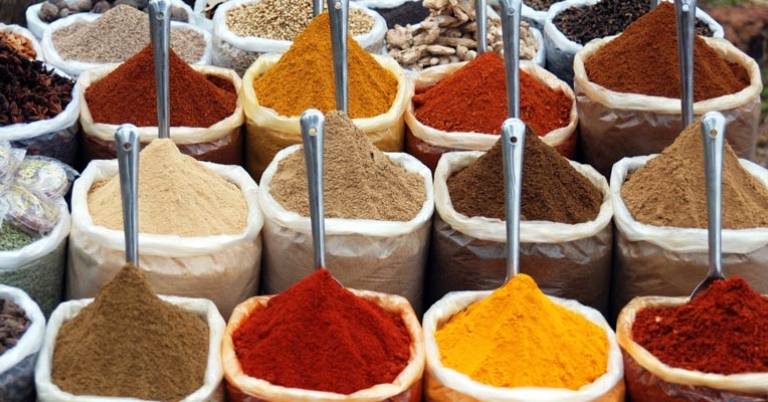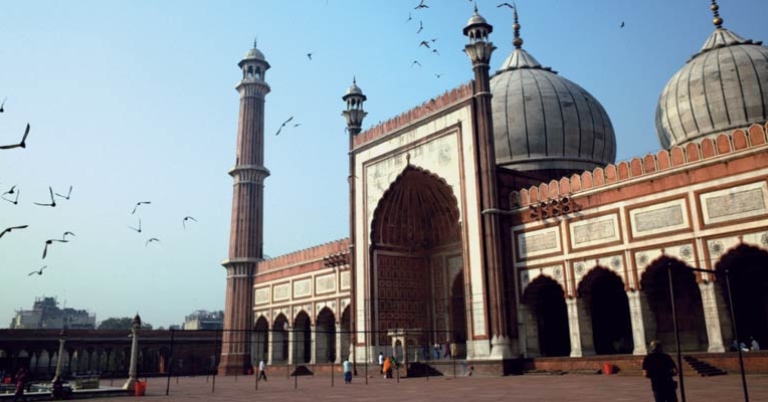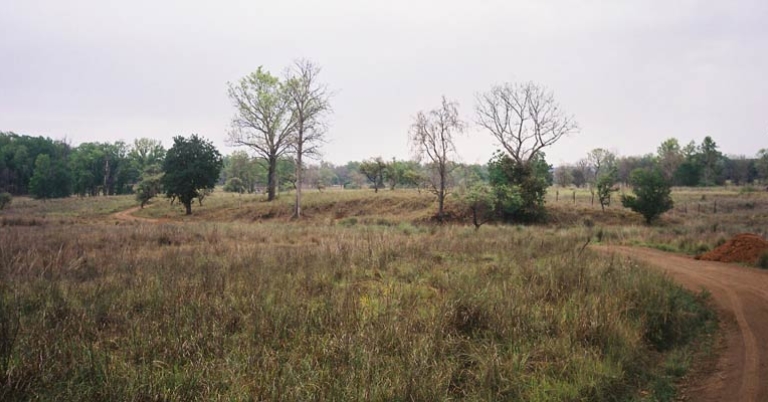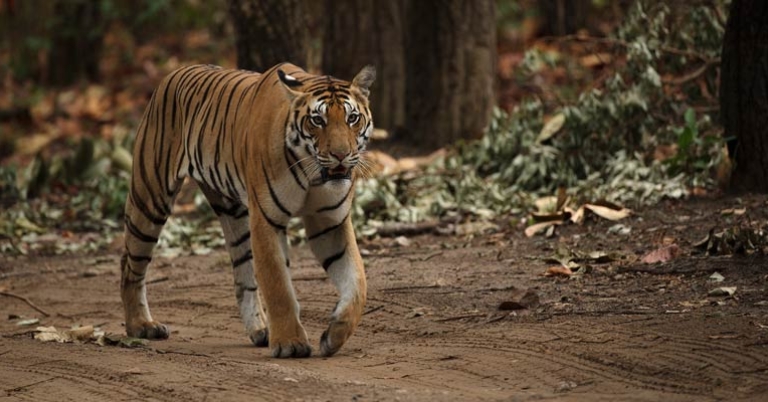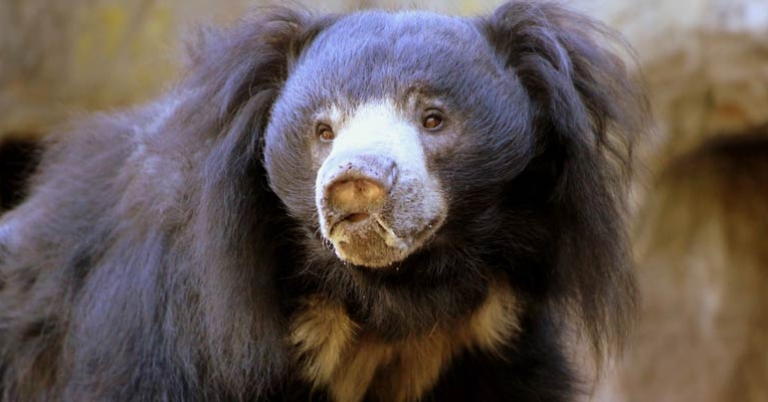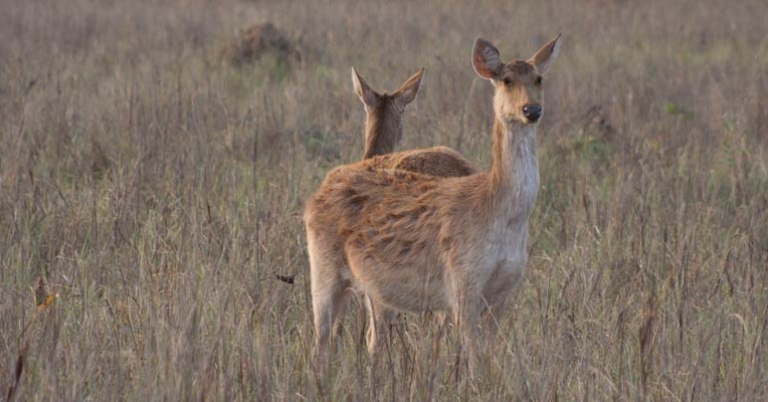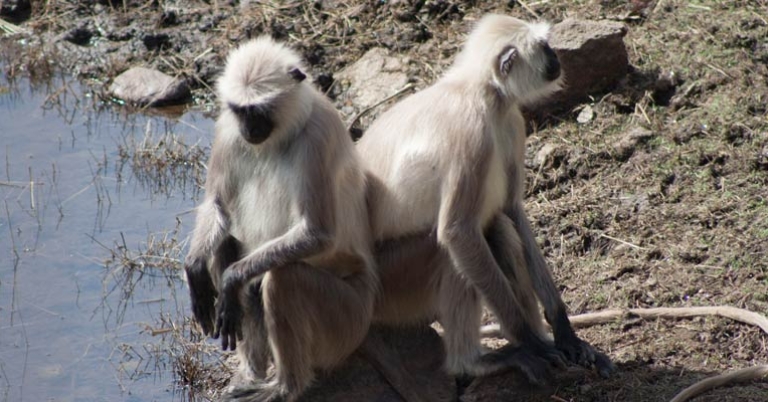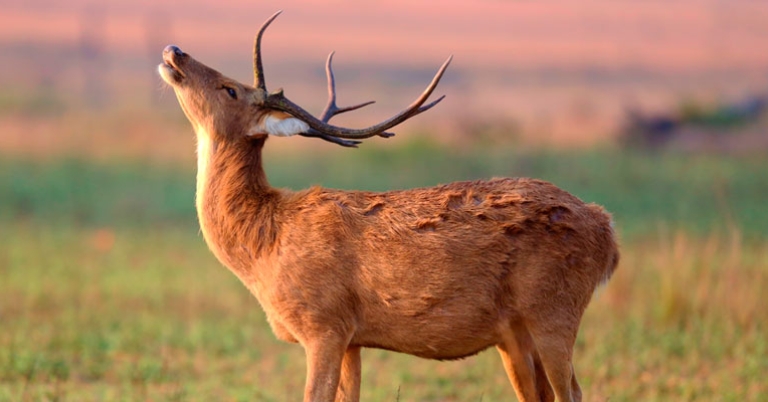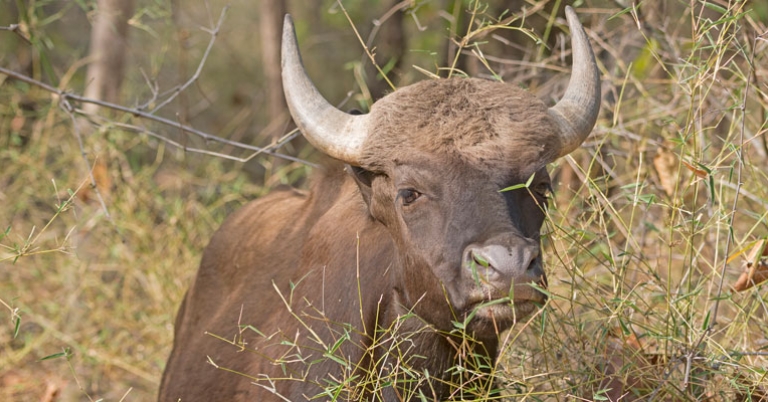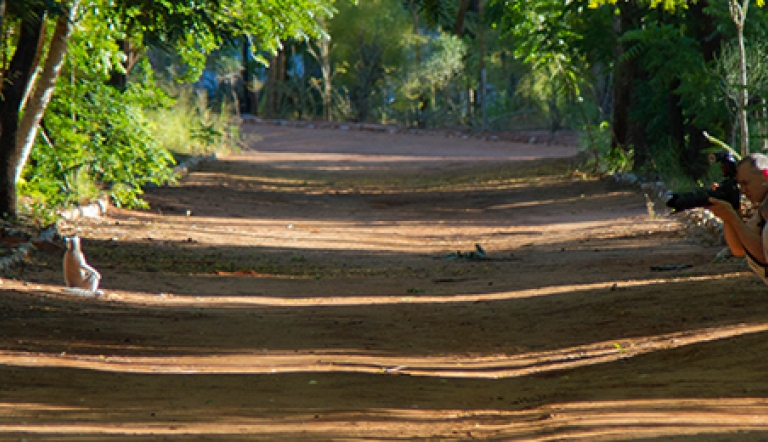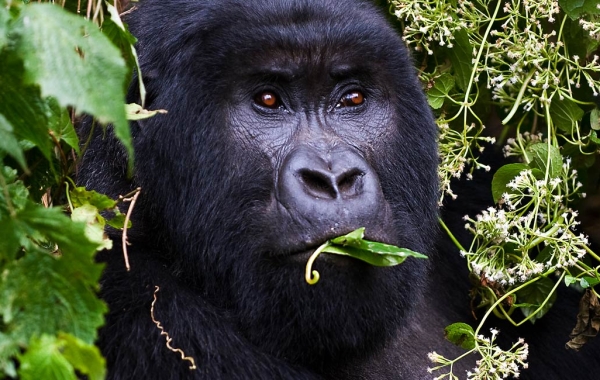India | Into the Wilds of India: Tigers and Beyond
About this trip
Often overlooked in favor of its cultural treasures, India’s resplendent natural heritage is also a vital part of the country’s identity. Go deeper into the heart of India through the stories of its conservationists and its most beloved resident: the Bengal tiger. Along with wildlife-viewing drives to spot these majestic but elusive creatures, learn about the efforts to protect their dwindling populations, including those of Kailash Sankhala, who founded Project Tiger in 1973. Witness his family’s conservation legacy firsthand during a stay at their ecolodge in Kanha, and discover their connection to former Prime Minister Indira Gandhi. Along the way, watch for other wildlife like Barasingha deer, Indian bison, langur monkeys, and sloth bear. Plus, get a taste of bustling Delhi and its rich history of pre-colonial empires and cultures.
Highlights
- Go on wildlife-viewing drives accompanied by a local naturalist and park guide for the best chances to spot tigers and other wildlife in three of India’s best parks and reserves.
- Discover the conservation story of the Bengal tiger at Kanha Jungle Lodge, operated by the family of Kailash Sankhala, India’s “Tiger Man” and pioneering conservationist.
- Gain a new perspective on the safari experience as you explore Satpura National Park on foot or by boat, a rare opportunity that offers deeper insight into tiger country.
- Learn about Indira Gandhi, India’s first female prime minister and a champion of tiger conservation.
- Take a rickshaw ride through Old Delhi to get a glimpse into India’s cultural past and present.
Activity Level 2: Easy-Moderate
This 14-day journey focuses on nature and wildlife, with some urban exploration. It is leisurely paced, with 2- to 3-night stays at 4 locations, and easy physical activity—mainly 3- to 4-hour safari drives in 4x4 vehicles over sometimes bumpy tracks. You’ll also enjoy a boat safari and/or the rare chance to seek game on foot. Safari drives begin at dawn, return you to the lodge for midday relaxation, then resume in the late afternoon. Aside from tigers you’ll seek diverse species in variable terrain that includes sandstone canyons, dense forests, and grassy plains. In Delhi you will visit the Indira Gandhi Memorial Museum, the former residence of one of India’s most powerful prime ministers. There are several overland transfers of 4 to 5 hours aboard air-conditioned, private motorcoaches, plus two internal flights (Delhi to Raipur and Bhopal to Delhi). Expect humid and warm weather, but early morning safaris can be cold so dress in layers. April to July are the hottest months, and November to February are the coolest and driest. This program is offered October to May as national parks are closed from June to early October.
$7,980
Land Cost
Group size
Book 10 travelers and 1 group
leader travels for free
Program is seasonal and only operates October through May, National Parks are closed from June to early October.
What makes us different
Wildlife up-close
Sustainable travel
Custom-tailored trips
Marketing support and resources
Support local communities
Flight arrangements
Daily Itinerary
Print ItineraryDay 1
Delhi
Day 2Delhi
Day 3Kanha National Park
Day 4Kanha National Park
Day 5Kanha National Park
Day 6Pench National Park
Day 7Pench National Park
Day 8Pench National Park
Day 9Satpura National Park
Day 10Satpura National Park
Day 11Satpura National Park
Day 12Depart
Day 13Day 14
Pricing
Print Pricing$7,980
Land Cost
Group size
Book 10 travelers and 1 group
leader travels for free
Program is seasonal and only operates October through May, National Parks are closed from June to early October.
What's Included
- Arrival and departure transfers based on individual flight schedules
- Full time guide for the duration of your program
- Non alcoholic beverage with meals
What's Not Included
- International airfare
- Items of personal nature
- Tips
- Travel Insurance
Pricing Details
Prices are valid for travel from Mar 1, 2025 - Dec 20, 2026. Holiday surcharges may apply.
Travel Info
Print Travel InfoEntry & Exit Requirements
U.S. citizens must have a valid passport to enter India. Passports must have at least two blank pages and be valid for at least six months after the date of entry.
A visa is required to enter India. For tourism visits not exceeding 60 days, U.S. citizens may apply for an electronic travel authorization at least four days prior to arrival at https://indianvisaonline.gov.in/evisa/tvoa.html. Visas are not available upon arrival in India, and if you arrive without the correct visa it is possible that you will be deported immediately.
If you are not traveling with a U.S. passport, please check with the Indian Embassy for the requirements based on your nationality.
Health Information
Immunizations
The Centers for Disease Control recommends that all travelers be up to date on routine vaccinations such as measles-mumps-rubella (MMR) vaccine, diphtheria-pertussis-tetanus vaccine, varicella (chicken pox) vaccine, and your yearly flu shot before every trip.
There are no vaccinations required for entry into India, unless you have been in a country where yellow fever is endemic within six days prior to entry, in which case proof of yellow fever vaccination is required.
Though not required, the CDC recommends vaccination against hepatitis A, hepatitis B, and typhoid for most unvaccinated travelers to India.
Please consult your physician for additional information and recommendations based on your individual circumstances.
Malaria
The CDC warns that travelers to India are at moderate risk for exposure to malaria. Malaria is caused by a parasite found in Anopheles mosquitos, which are active from dusk until dawn. Prevention is twofold: the use of anti-malarial drugs and the prevention of insect bites. If you choose to use an anti-malarial drug, as recommended by the CDC, see your physician for a prescription.
To protect against mosquitos, the CDC recommends that you cover exposed skin with lightweight, long-sleeved shirts and pants, consider treating clothes with permethrin, and use an insect repellent containing an EPA-registered active ingredient like DEET, picaridin, or oil of lemon eucalyptus (OLE). Apply sunscreen first, followed by the repellent, ideally 20 minutes later.
Be careful when applying products containing DEET, as it can damage or dissolve certain synthetic fabrics as well as plastic, rubber, vinyl, or elastic materials, such as those used in camera equipment, binoculars, phone cases, sunglasses, or watches. Additionally, some research suggests that when DEET and picaridin enter local waterways, they can be harmful to amphibians and other wildlife. When selecting a repellent, it is ultimately up to each traveler to weigh the risks and benefits of different options, keeping in mind both environmental factors and the importance of protecting against illness.
Other Insect-borne Illnesses
In addition to malaria, the CDC warns that travelers may be at risk for other insect-borne illnesses, such as dengue fever, chikungunya, Zika virus, leishmaniasis, and others.
Travelers to India should protect themselves against insect bites using the measures described above. Additionally, after spending time outdoors, especially in grassy or wooded areas, the CDC recommends showering and conducting a full-body check for ticks. If you find a tick attached to your skin, safely remove it as soon as possible.
As a precaution, the CDC advises women who are pregnant to consider postponing travel to any area where Zika virus transmission is ongoing.
Animal Bites/Rabies
Dogs, bats, monkeys, and other mammals are known to carry rabies in India. Avoid stray dogs and wild animals that seem curious or don’t run away from humans. In the unlikely event of being bitten, clean the wound and control bleeding. Seek medical attention immediately. The CDC advises if you wake up with a bat in your room, assume you might have been exposed to rabies (even if you don't detect a bite) and see a doctor right away to find out if you need treatment.
Sun Exposure
The effects of the sun can be damaging to the eyes and skin. Spending time outdoors exposes you to the sun’s harmful ultraviolet (UV) rays, even on cloudy days. To protect yourself from the sun, use a broad spectrum sunscreen of at least SPF 15, protect skin with clothing, wear a wide-brimmed hat and sunglasses, and drink plenty of fluids.
Food & Water
It is generally not safe to drink tap water in India; instead use bottled water or water that has been boiled. Also use bottled water to brush your teeth. You may also wish to bring water purification tablets with you as a precaution if you are traveling to more remote areas. Avoid taking ice in cold drinks, and do not eat salad vegetables unless you are eating in a major international hotel or restaurant.
Respiratory Illness Protocols
Please review our Respiratory Illness Protocols page, which explains our policy and procedures if you or another traveler should develop symptoms of a respiratory illness during your trip. Your participation in a Holbrook Travel program indicates that you are in agreement with these protocols.
Resources
Print ResourcesPacking Recommendations
Everyone has personal preferences when it comes to packing; for this reason, the information below is offered as a general guide and not a definitive list. You know yourself best: Use your discretion and pack what you think will serve you, based on your personal preferences and specific itinerary.
You may find many of the items below in the New Headings Gear Store. Use code HolbrookGuest10 for a 10% discount on your purchase.
CLOTHING
Casual, comfortable clothing is suitable for most activities. You may wish to bring a slightly nicer outfit or two if your itinerary includes dinners out or more formal activities.
Bring enough clothing suitable for the length of your program. If you prefer to pack light, note that many hotels offer laundry services at additional cost. If you plan to hand-wash items, remember that humidity may delay drying time.
Pack clothing that can be worn in layers to adapt to weather changes throughout the day. India’s rainy season is June through September, but it can rain at any time. Clothing that wicks away moisture and dries quickly is recommended.
In the winter months, warm clothing is strongly recommended. Temperatures can get quite chilly, especially at night and early in the morning. Consider packing a warm underlayer, as well as a warm, protective outer layer.
Please note: It is advisable not to wear black or blue, as this attracts flies and mosquitos.
- A combination of short-sleeved and long-sleeved shirts that can be worn in layers
- Shorts
- Lightweight, quick-drying long pants for sun and mosquito protection; medium-weight pants or jeans for cooler weather
- Undergarments
- Sleepwear
- Lightweight jacket or sweater/sweatshirt (or heavier weight if visiting during cooler months)
- 1-2 bathing suit(s) – Some hotels have swimming pools.
- Socks – Bring extra pairs.
- Shoes – Consider your specific itinerary when choosing footwear. For most programs, you’ll likely want at least one pair of comfortable, closed-toe walking or hiking shoes suitable for forest hikes and walking over cobblestones or other uneven terrain. Sturdier hiking boots may be appropriate for more active itineraries. In addition, many participants opt for a pair of sturdy sport-strap sandals (e.g. Keens, Tevas, or similar) and/or casual flip-flops or sandals for around your accommodations.
- Lightweight rain jacket, hooded poncho, and/or windbreaker
- Visor or wide-brimmed sun hat
- Bandana, scarf, or neck gaiter
Personal Toiletries
Pack toiletries based on your personal preferences and habits. Below are just a few recommendations to keep in mind.
- Shampoo, conditioner, lotion, deodorant/antiperspirant , etc. – If possible, avoid strong fragrances if you are sensitive to insect bites and to be considerate of your fellow travelers.
- Soap and washcloth or a small, quick-drying microfiber towel – Washcloths are not standard in all hotels. If you normally use a washcloth, you may wish to bring one from home.
- Hairbrush, comb, hair ties, shower cap. Some hotel rooms provide a hair dryer, but not all do.
- Toothbrush and toothpaste
- Razor
- Ear plugs, especially if you are a light sleeper
- Personal hygiene products
- Insect repellent with DEET or picaridin (see note below about treating clothing with permethrin)
- Sunscreen and lip balm with SPF
- Aloe vera gel
- A travel pack of tissues – also useful as napkins or toilet paper if needed
In addition to your personal toiletries, it is useful to pack a small medical kit, which you can easily prepare. Helpful items might include: bandages, antihistamine, a pain reliever, motion sickness and/or altitude sickness medication (if you are prone to either), anti-diarrhea medicine, individually wrapped pre-moistened towelettes and/or hand sanitizer, antibiotic ointment, anti-fungal cream, moleskin for blisters, eye drops, tweezers, a mini sewing kit, and an extra pair of disposable contact lenses or eyeglasses if you wear them.
Days before you leave home, you may wish to consider spraying any clothing, socks, and shoes that will be worn in lowland, tropical sites with permethrin, an anti-parasite medication, to repel irritating pests and prevent the spread of disease. A recommended brand is Sawyer. Carefully read all instructions before use. Please note permethrin is highly toxic to cats and fish, and some aerosol products may be harmful to birds. Side effects may include minor itching, burning, or redness. You may want to use a laundry marker to label and keep track of which socks are permethrinized. Only one application per item is necessary; permethrin on treated clothes remains effective through several washings. Permethrin should NOT be applied directly to skin.
Miscellaneous
Remember to pack valuables such as your passport, cash/credit cards, and medications in your carry-on luggage.
- Passport and photocopies of all travel documentation
- Personal insurance card and travel insurance information
- Money – ATM/credit card, traveler's checks, and/or cash; small bills in good condition are recommended
- Prescription medicines (if applicable), with a copy of the prescription
- Yellow fever certificate (if required; only if arriving from a country where yellow fever transmission is a risk)
- Sunglasses with strap
- Small day pack for hikes and excursions
- Flashlight and/or head lamp
- Travel alarm clock or inexpensive wristwatch with alarm – Not all hotels provide alarm clocks.
- A pocket calculator or phone to assist with conversions and currency exchange
- Binoculars with lens cleaner
- Camera and related equipment, such as charger, lenses, and extra memory cards
- Reusable water bottle
- Non-perishable snacks
- Pocket-knife or multipurpose tool – Pack in your checked luggage.
- Zip-top style bags – useful for packing toiletries, sorting clothing, storing damp or muddy shoes, or as a dry bag for protecting electronics
- Notepad or travel journal and pen
- Music or reading material for down time, long drives, or on the airplane, and a portable bright light to read by
- A small quantity of laundry detergent if you’ll be washing clothing by hand
- Money belt
- Voltage converter and plug adapter
- Chargers for electronics

Questions
For more information, contact us at 800-451-7111 or email travel@holbrooktravel.com.
